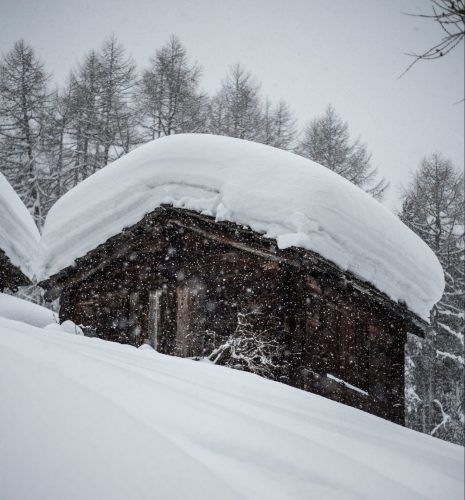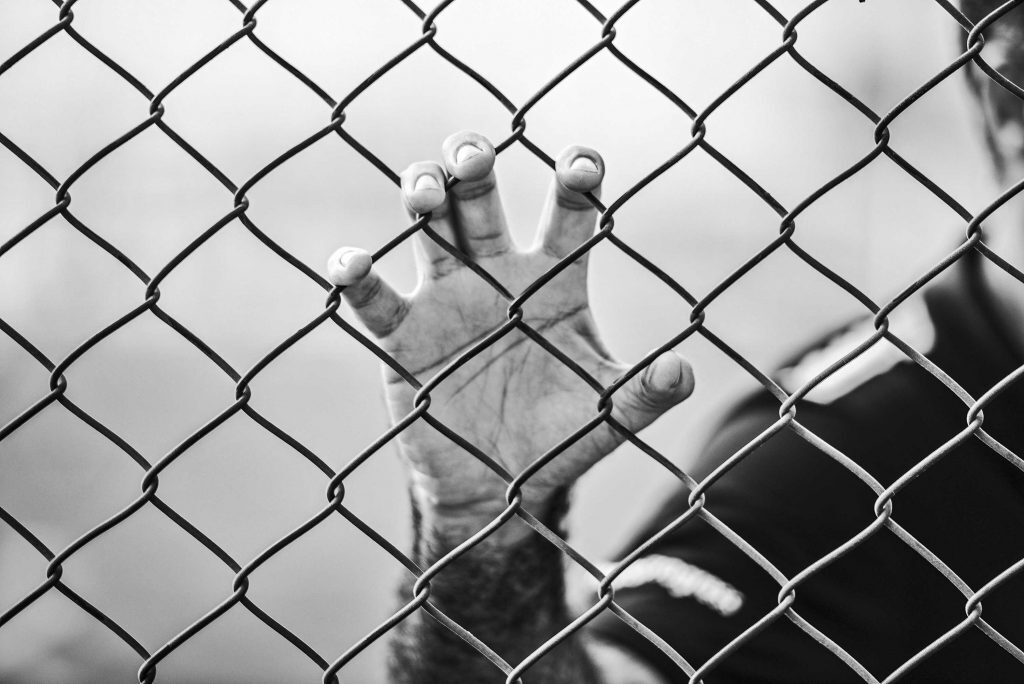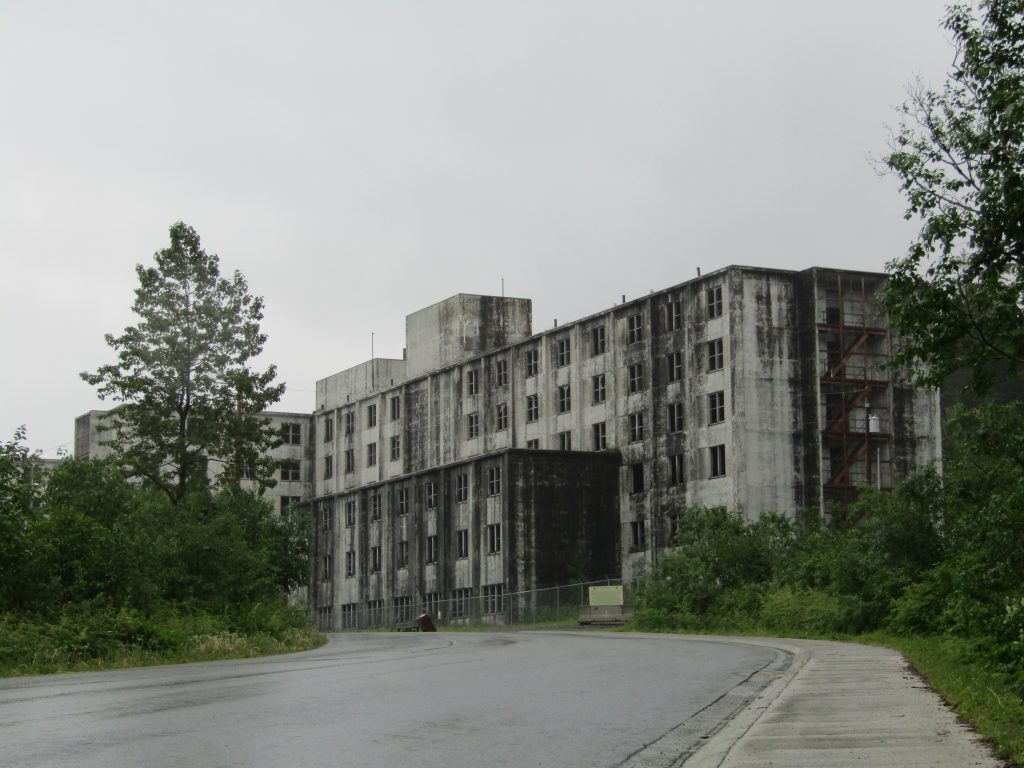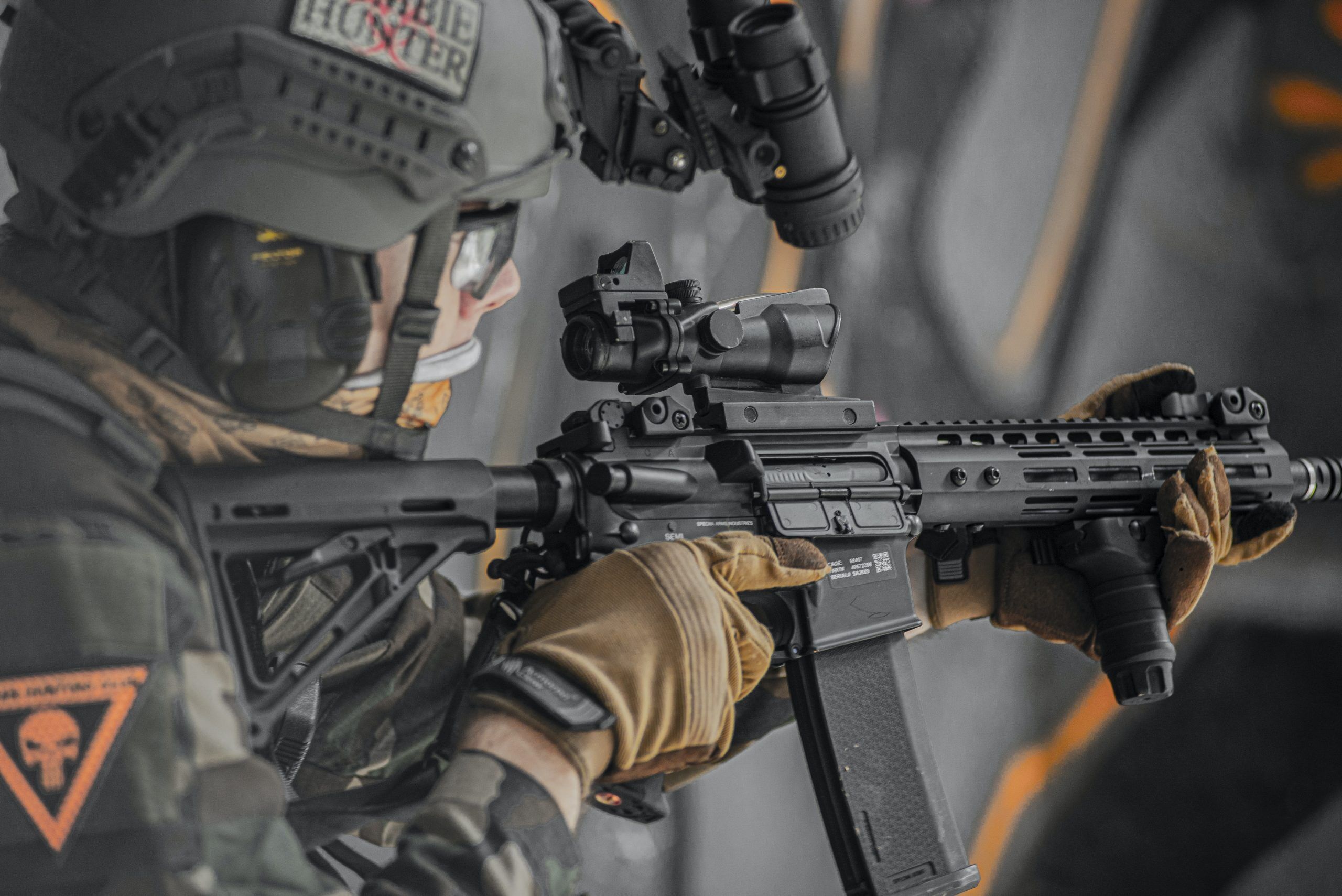I woke up to the unsettling caw of a raven sitting in a tree near my window. I could feel the sweat that had built up on my forehead overnight and I was feeling greasy, but the prospect of what I had to do this morning grated on my nerves. I rolled over on my other side, having decided to give myself a few more hours to improve my mood. The moment I closed my eyes I fell back into the dreary embrace of blackness.
I was already pulling my boots on when I realized that it had snowed overnight. Again. A glance out of the back window of my cabin revealed the heavily snow-laden trees, they bowed in submission to the densely packed wet slush that persisted despite the climbing temperatures. The quiet stillness that came with a fresh blanket of snow provided an unflappable peace. There was a certain appeal to the idea that Mother Nature cared just as much about the affairs of men as I did. I wrapped the rough brown-dyed moose leather ties around my second mukluk and secured it, right before my annoyingly devoted husky pushed her face underneath into my armpit and flung my arm upward to tell me what time it was.
I set her kibble in front of her, she plopped down, wrapped her front paws around the silver bowl, and began to eat it daintily; it had taken me almost two years to teach her how to be a lady at chow time. Hash-browns and eggs hit the hot skillet with a loud sizzle, I was counting on those extra carbs to give me a bit of a boost of energy today, it was still frigid outdoors and I had a lot to do. A shovel full of the wet snow felt as heavy as lead and the next hour proved to exacerbate my sciatica, but it was the combination of painfully numb fingertips and the sweat running down my back that was the most unpleasant aspect of it all. Nevertheless, if I wanted to get out of my driveway, I needed to clear enough space to give myself a running start out onto the unplowed road.
My stark white pup, Scottie, had begun to run circles around me, her joyful frolic in the fresh snow had not quite come to an end. This was her favorite time of year, she was built for this weather, and then she disappeared into a large pile of snow and reemerged with a goofy, tongue-lolled-out smile. I stuck the shovel upright into one of the snow berms I had built up and started up my Jeep to warm the engine—that was Scottie’s cue and she knew we were going to town before I could even make it back to the house for my wallet and coat. She was already sittin’ purdy in front of the door.
I stopped on the top step, kicked my mukluks together, and snow fell off in wet clumps. A chickadee caught my eye, as it flew past my head and landed on a nearby branch, then my line of sight was drawn to my neighbors’ cabins. They had been oddly quiet today, each of their cabins had their respective car or truck parked in front when they would normally have been gone by that point. I hadn’t seen them going in or out of their cabin all day either, and I couldn’t see tracks in the fresh snow around their houses and that was strange, to say the least. Then again, I guess it wasn’t any of my business.
I knew the drive out to the main road wasn’t going to be a picnic, but I just needed to get out of that cabin. So today, Scottie and I were going to indulge in our favorite pastime of watching The Price is Right whenever we could make it to the bar by the time they opened their doors in the morning—I had been told that today would be the last day it would be open for at least two months while the rest of the city slept in quarantine. I didn’t understand why they were closing all sit-in establishments, why couldn’t people just wash their damn hands and stay home if they were sick? One bad apple… or something like that. So, this was officially the last chance I would have where I could get out of the house for more than just some colas and toilet paper for a while. I was going to take full advantage of it if I could.
Cabin fever was a bitch and sitting at home with nowhere to go would be fine for a while, but it was only tolerable if there were brief punctuations of exposure to the outside world. It was barely 10 in the morning, the bar had just opened its doors and somehow the same five regulars were already there for coffee and our morning ritual of the boob tube. Delicate white flakes of snow drifted down from the grey sky when I pulled into the parking lot of the dull red riverboat-turned-bar.
Scottie slipped through my legs into our favorite dive bar as soon as I opened the door and then she made her rounds to greet her favorite people. Her favorite people being the ones who offered her the dog biscuits that were kept behind the bar. When Scottie finally came back around, I had my coffee in front of me and the sound of Johnny Olson’s trademarked, “come on down!” was coming in clear over the cacophony of applause and theme song. Gary, to my left, passed me the local paper once he was done with it and there it was. The headline struck me abruptly; my heart inched further and further up my throat.
MANHATTAN OVERRUN
I swallowed down the lump in my throat and I set the paper aside, because ignorance is bliss, at least for now. A bubbly older woman on the television was bobbing up and down on the balls of her feet as she leaned in to spin the huge wheel for the Showcase Showdown; I threw back the rest of my now cold coffee and fended off the bartender’s attempt to refill my cup.
“I’ll be back later with Trudy,” I mentioned in passing before I pulled my Carhartt jacket on over my sweater, the bartender smiled and waved as Scottie and I opened the door to leave. I had a date with an old lady and a shopping cart, so I knew I would get an earful of the latest news on what was happening in the world from Trudy soon enough. Worrying too much about the headlines right now would just make my mood worse—no need to ruminate.
I loaded Scottie into the back of my Jeep and in no time at all, we were cautiously pulling into Trudy’s driveway. I popped my head in through her front door to let her know I was there, then came the inevitable shoveling of snow to clear her driveway enough for her to get through to my Jeep without too much difficulty. Tiny Trudy appeared at her front door just as I finished creating a path for her and I held out a hand to her, so I could help her down the rickety stairs. Her frail form moved agonizingly slow over the slick black ice near her door. Her cleated boots made no difference in consideration of her near weightless state. The drive was quiet, except for her unceasing country music and her tar-coated lungs wheezing with each breath. The store was startlingly barren, the panic still hadn’t subsided it seemed—Trudy’s normal complaints had gone into overdrive.
“There’s no toilet paper, honey!” She wheezed indignantly, her creaky voice announced both her dissatisfaction and her disbelief. Once she saw the headlines of the scandal sheets, she broke into a brief political tangent. I could tell that she didn’t quite get the panic that had overtaken people—but then again, did any of us understand it? Trudy wasn’t incredibly worried about the pandemic, she was eighty-seven years old, a life-long smoker, and had lived through the pipeline days. If she hadn’t croaked yet, then she wasn’t going to start worrying about it now—she didn’t see the reason for being concerned about “a little fever and breathing problems,” she had told me, “—I’ve already gotten my flu shot!” I had to be careful not to let my eyeballs roll straight out of my head. Her logic always seemed to take me by surprise, but I wasn’t going to complain, after all, I was all she had during the winter.
By the time I sat down at the bar for the second time that day all of the regulars except for Gary had gone. Frail and wispy Trudy, surprisingly, could still get up into the tall squishy blue barstools that towered over her and she settled in. She ordered herself a Carolans and coffee, then paid for another coffee for me—the bartender was always happy to see Trudy, but the gloom over the patrons of the bar was palpably different than when I had been there earlier. I didn’t honestly think much of it until Eeyore incarnate began speaking to me.
“The end is fucking nigh,” Gary muttered and leaned awkwardly to one side, he hadn’t moved seats from this morning, but it was clear he was already three sheets to the wind. I figured that he must have been mulling over that headline for the past few hours; I watched him sink into his third beer since Trudy and I had arrived. Gary was always a glass-half-empty kind of person so it was pointless to try to cheer him up, but considering I was already dealing with cranky little Trudy, it wasn’t high on my priority list, to begin with.
I must have been letting the alarm of the general population of this small city get to me—or was that sweat gathering on his greying brow? It was too chilly to be sweating. The more I thought about it, the more I realized that Gary wasn’t being the normal whiny drunk he was known to be. My thoughts were disturbed by a violent outburst of coughing from Gary who was looking paler by the minute, I was sincerely glad Trudy and I had decided to sit on the opposite end of the bar from him. The last thing I needed was for 87-year-old Trudy to catch the virus that had just been announced on a national level.
“Gary, you might want to think about heading home,” I projected over the low buzz of the conversations of the other patrons. I cast a look at the bartender and then gestured to Trudy, at my side, with my eyes. The bartender nodded, you could see her anxiety even behind her practiced smile—the bartender walked off to use the phone to call a cab for Gary. There was no way anyone in this bar would want to drive Gary home; it’s not that they didn’t want him to get home safely they just didn’t want to do it themselves. Why was he even here in the first place? Was he trying to get people sick, or was he unaware of just how ill he was?
It was probably too late by that time, Gary had probably already exposed us all to the virus—there were rumors that it was airborne, but the first cases only popped up within the last couple of days and so far all we knew is that some of them were already in the ICU. No one had recovered from it yet, but if it was anything like any other new virus, surely it would take at least a couple of weeks to see what recovery looked like. Regardless, I was worried about Trudy being exposed to whatever Gary was coughing up, so when his cab finally came and he bumbled drunkenly out of the bar the rest of us were able to breathe a little easier.
It took an hour, but I was finally able to convince Trudy to let me take her home. I must emphasize how relieving that was, mostly because I wanted to go home and Scottie was still waiting in the car. She made it down the slick, ice-patched stairs with a little help—but, something was wrong. I just realized that Scottie was barking at something on the other side of the car and that wasn’t like her at all. Scottie noticed us and her barks immediately turned to whines, but I couldn’t see through the dark tint of the back windows. I loaded Trudy into the car, she was so neatly tucked into her fluffy down winter coat. She reminded me of that scene with Ralphie’s little brother from A Christmas Story, where the mom wraps Randy up in so many layers that he’s incapable of moving his body.
I rounded the back of the car, keys in hand; that’s when I realized Gary was slumped against the back driver’s side door of my Jeep, “Gary—what in the hell are you doing?” Gary sounded like his words were garbled—and he groaned, he looked even more pale and green than he had before if that was even possible. Gary lurched forward, swiped his arms as if reaching for me, and upon sidestepping out of his way, he landed firmly on the ground. Gary didn’t waste any time though, he crawled back toward me and tried to grab my ankles this time. That raspy growl would stay with me forever, turned into a half scream as Gary began to rise to his feet and come at me once again. I opened the driver’s side door, jumped in, and slammed it just in time to put a barrier between Gary and us. With a closer look, I could see that his eyes were red and completely vacant.
“What is it, honey?” Trudy was exasperated, her eyesight was fading, her hearing wasn’t what it used to be. I weighed the decision if I should tell her what just happened—better not for right now.
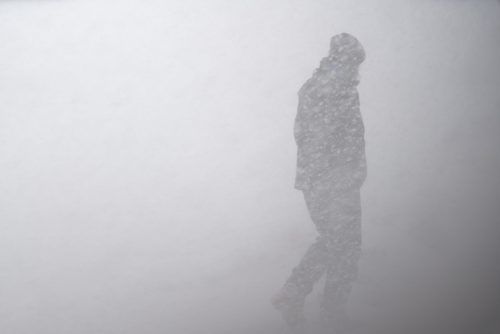
“Nothing Trudy, we’re just going to get you home.” I tried to sound nonchalant but what had just happened truly freaked me out, Trudy didn’t need to know. She didn’t leave the house without me anyway, so what good would it do her to worry? The news hadn’t reported on this though, it only talked about major panics in smaller towns. When we finally pulled into her driveway we had passed at least a half dozen wrecks on the side of the road and I could tell that they weren’t just due to slick and slushy roads.
Her neighborhood was quiet, I helped her to her front door and proceeded to unload the groceries for her. Once I joined her inside I saw that she was already sitting in her favorite rocking chair smoking a cigarette in the garage. I resigned to put the groceries away, took out her trash, and then said my goodbyes. I didn’t feel right leaving her there on her own, but she never opened the door for anyone else and I needed to find out what was going on. Scottie had hopped into the front seat and was waiting for me when I slid back into the driver’s seat and we were on our way back home. Maybe the local news would give me an idea of what was going on, the paper had been vague at best, what I had seen with Gary had to be newsworthy, but Manhattan was over four thousand miles away, how could whatever that was be happening here?
The road that led to my driveway was still unplowed when I drove back through and my brakes made an audible creak as I slowed to a stop in my driveway. There was a heaviness in my chest that couldn’t be alleviated by coming home, it didn’t feel like my usual home-coming, no relief from being in public, no, indeed the stress lingered. I turned my car off, gave my pup a gentle pat on her back, then began to climb out onto my hard-packed driveway. That’s when I heard the strange sirens coming down my dead-end road and a few strange military-looking vehicles stopped directly in front of my neighbor’s cabin. Soldiers with guns quickly made a perimeter and two people in Hazmat suits stood behind their line. I stood there, awestruck—Scottie, took me by surprise when she jumped down in front of me, her hackles were up.
“Miss, get inside now!” One of the soldiers shouted at me, that’s when my neighbor Rachel emerged from her cabin across the way, against my better judgment I took a step toward the soldiers and Rachel’s cabin—I couldn’t tell if her eyes looked like Gary’s but, her movements sure mimicked what I had seen in the parking lot at the bar. “MISS, I SAID GET INSIDE!” The soldier barked at me again, I hesitantly took a couple of steps back, then signaled for Scottie to go to the cabin. Except… I couldn’t look away, I needed to know what was going on.
Rachel had begun to scream and growl before she lunged at the closest soldier and took a chunk out of his neck—holy shit.
If you liked this installment of Duology of the Damned, then check out Part 02 — The Monster Inside of Me
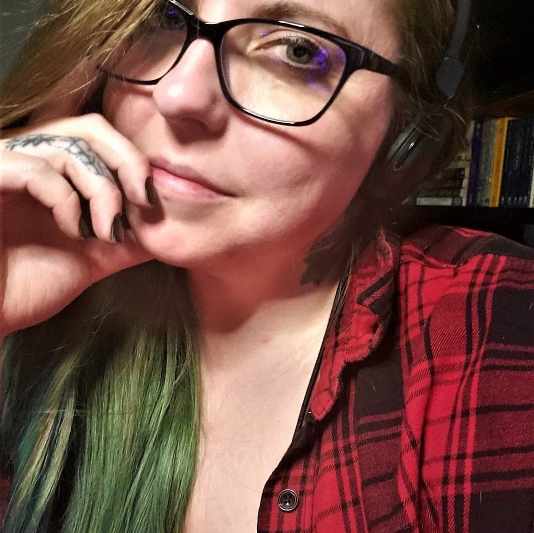
Georgia-based author and artist, Mary has been a horror aficionado since the mid-2000s. Originally a hobby artist and writer, she found her niche in the horror industry in late 2019 and hasn’t looked back since. Mary’s evolution into a horror expert allowed her to express herself truly for the first time in her life. Now, she prides herself on indulging in the stuff of nightmares.
Mary also moonlights as a content creator across multiple social media platforms—breaking down horror tropes on YouTube, as well as playing horror games and broadcasting live digital art sessions on Twitch.

